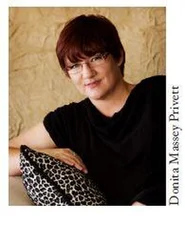Brad Parks - The Girl Next Door
Здесь есть возможность читать онлайн «Brad Parks - The Girl Next Door» весь текст электронной книги совершенно бесплатно (целиком полную версию без сокращений). В некоторых случаях можно слушать аудио, скачать через торрент в формате fb2 и присутствует краткое содержание. Год выпуска: 2012, ISBN: 2012, Издательство: Minotaur Books, Жанр: Триллер, на английском языке. Описание произведения, (предисловие) а так же отзывы посетителей доступны на портале библиотеки ЛибКат.
- Название:The Girl Next Door
- Автор:
- Издательство:Minotaur Books
- Жанр:
- Год:2012
- ISBN:031266768X
- Рейтинг книги:4 / 5. Голосов: 1
-
Избранное:Добавить в избранное
- Отзывы:
-
Ваша оценка:
- 80
- 1
- 2
- 3
- 4
- 5
The Girl Next Door: краткое содержание, описание и аннотация
Предлагаем к чтению аннотацию, описание, краткое содержание или предисловие (зависит от того, что написал сам автор книги «The Girl Next Door»). Если вы не нашли необходимую информацию о книге — напишите в комментариях, мы постараемся отыскать её.
The Girl Next Door — читать онлайн бесплатно полную книгу (весь текст) целиком
Ниже представлен текст книги, разбитый по страницам. Система сохранения места последней прочитанной страницы, позволяет с удобством читать онлайн бесплатно книгу «The Girl Next Door», без необходимости каждый раз заново искать на чём Вы остановились. Поставьте закладку, и сможете в любой момент перейти на страницу, на которой закончили чтение.
Интервал:
Закладка:
“It was not a cult, it was a-” Jeanne started, but again her voice lacked the strength to compete with Anne, who turned her attention to me.
“I was in my final year of law school when our father died,” Anne said, apparently trying to win me over because Jeanne was beyond convincing. “I couldn’t quit at that point, not when I was that close. Nancy had just started college and she shouldn’t have had to quit, either. But she dropped out to be with our mother because my sister here felt it was more important to spend time with a bunch of strangers in-”
Jeanne was drawing breath to dispute that point when the fight was abruptly halted by a terrible noise:
Their mother began bawling.
* * *
There’s nothing like an old woman wailing at a funeral home to send people, particularly the guys, scurrying to action. Men in suits were suddenly diving in from all directions with handkerchiefs and offers of support. At a WASP wake-the kind with which I was more familiar, given my ethnicity-the grieving woman would have been shushed. This being an Italian affair, Mrs. Marino was allowed to moan as loudly as she wanted, but she was not going to do so alone.
In the meantime, two men-cousins or husbands, it was unclear-dove in between Anne and Jeanne, ostensibly breaking up the fight by driving the women into their respective corners. As the jerk who started it all, I found myself trying to slink away quickly so no one could identify me as the culprit.
Chastened, I retreated into the hallway, where I eventually began interviewing a representative sample of the people who had been in Nancy’s life: high school classmates, fellow Eagle-Examiner carriers, coworkers from the State Street Grill.
I got a good dose of the usual cliches-everyone liked her, she never said a bad word about anyone, she didn’t have a single enemy, and so on-but also managed to ferret out some of the details of Nancy’s life.
She had been an outstanding student at Belleville High, graduating in the top ten percent of her class and making All-County in softball. After high school, she enrolled at College of New Jersey, then known as Trenton State, a well-regarded small public college. Her father died a few weeks into her freshman year, and Nancy moved back home to be with her mother. And, somehow, that’s where she stayed. She got a job as a waitress. A few years after that, she took over the newspaper route.
And that became her life: she worked two jobs, kept her mother company, and maintained her friendships from high school and the neighborhood. She didn’t have much time for anything else. She was never married. She dated occasionally, but there hadn’t been anyone special in that capacity for quite some time. Friends said she seemed content, never considering what life might have held for her if her father had stayed alive or if she had gone back to school.
Eventually, she saved enough money to buy her own house, a source of pride. It was just a few blocks over from her mother’s place, but in that part of New Jersey-a jigsaw puzzle of tiny towns fitted next to each other-a few blocks crossed a municipal boundary. So it was she ended up living in Bloomfield, not Belleville.
Beyond those biographical details, I mostly heard about Nancy’s kindness and generosity of spirit. She not only had two jobs that involved serving others, but she did it in her off-time, too. It seemed Nancy was everyone else’s biggest fan, the kind of person who always knew when someone had done something good and was the first to congratulate them for it.
“She just existed to cheer on other people,” one of her friends told me. “It’s like her hands were made for clapping.”
It was the perfect first quote. And since it was nearing three o’clock, the end of the afternoon session at the funeral home, that made it the perfect time to get back to the office and start writing.
I was on my way out the door when I recognized one last person who could make for a useful interview: Jim McNabb, the executive director of IFIW-Local 117 and a well-known figure on New Jersey’s political scene.
Local 117 was a large conglomeration of unionized employees, encompassing workers who could loosely be considered in the communications business-everything from newspaper deliverers to bulk mail assemblers to cable TV installers to the people building the latest wireless network. All told, it claimed something like a hundred thousand members, which made it a force in the state capital, where vote-hungry legislators remained cognizant of the need to pander to its leadership.
For as long as anyone could remember, that leader was Jim McNabb, who greatly enjoyed being the recipient of said pandering. His primary talent was knowing all the players and, more important, where they buried the bodies. (And this being New Jersey, I mean that literally.) He was a gregarious guy with a full head of silver hair and a stocky frame, and he was like the politicians he lobbied, in that he enjoyed working a room.
Unlike the politicians, though, he was actually likable. He had a gift for names and faces, and once he met you the first time, he treated you like a long-lost best friend every time he saw you thereafter. To some that might seem disingenuous, inasmuch as he reacted to everyone that way. But to me, you couldn’t be that enthusiastic about other human beings unless somewhere, deep down, you really liked them.
Plus-and this always counted for something in a newspaper reporter’s estimation-he was a colorful quote, the kind of guy who was always available for comment and could be relied upon to say a bit more than he probably should.
So we had some good history, and as I approached, he greeted me with a quiet-but-enthusiastic “Carter Ross! How is the star investigative reporter!”
“Hey, Jim, pretty good. Wish we were seeing each other under different circumstances, but-”
“Is there something to investigate here?” he interrupted, not bothering to hide his intrigue.
“Not a thing. I’m just doing a little appreciation piece about Nancy for tomorrow’s paper.”
“Are you sure there’s no smoke here?” he quizzed. “Because you know what they say about places where there’s smoke.”
His natural friendliness aside, McNabb was the kind of guy who was always looking to exploit any angle that might help the union cause or, at least, get his name out there. If I told him I was doing a piece on businesses that refused to let their workers eat hot dogs, he would launch into a windy sermon about the health benefits of the roasted wiener-all of which he would have invented on the spot-and rail against anyone who deprived employees of their right to life, liberty, and the pursuit of Oscar Mayer.
“Nope,” I said. “No smoke, no fire.”
“Okay, okay,” he replied. “Well, it’s real kind of you to do a story about Nancy. She was a terrific kid.”
We chatted for a few minutes about Nancy, whom he described as one of his best shop stewards. He said the obligatory nice words about her, sharing the opinion that she was a loyal employee and a trustworthy friend. Then, as we began to wrap up, he jerked his silver mane in the direction of her coffin.
“Hit and run. Hell of a way to go, huh?” he said. “I just hope they catch the bastard that did it and tie him to the center lane of the Turnpike so we can run him over.”
* * *
By the time Jim and I parted, it was after three and the funeral director was gently shepherding the crowd out onto the street. He was subtle about it-a funeral home can’t exactly announce last call-but people were getting the hint.
I climbed into my Malibu, feeling my reporter’s notebook pressing against my thigh. I don’t know what it is, because ballpoint-pen ink barely weighs anything, but a full notebook just feels heavier than an empty one. And I knew I had filled this one with enough good stuff to easily get me to sixteen inches.
Читать дальшеИнтервал:
Закладка:
Похожие книги на «The Girl Next Door»
Представляем Вашему вниманию похожие книги на «The Girl Next Door» списком для выбора. Мы отобрали схожую по названию и смыслу литературу в надежде предоставить читателям больше вариантов отыскать новые, интересные, ещё непрочитанные произведения.
Обсуждение, отзывы о книге «The Girl Next Door» и просто собственные мнения читателей. Оставьте ваши комментарии, напишите, что Вы думаете о произведении, его смысле или главных героях. Укажите что конкретно понравилось, а что нет, и почему Вы так считаете.












